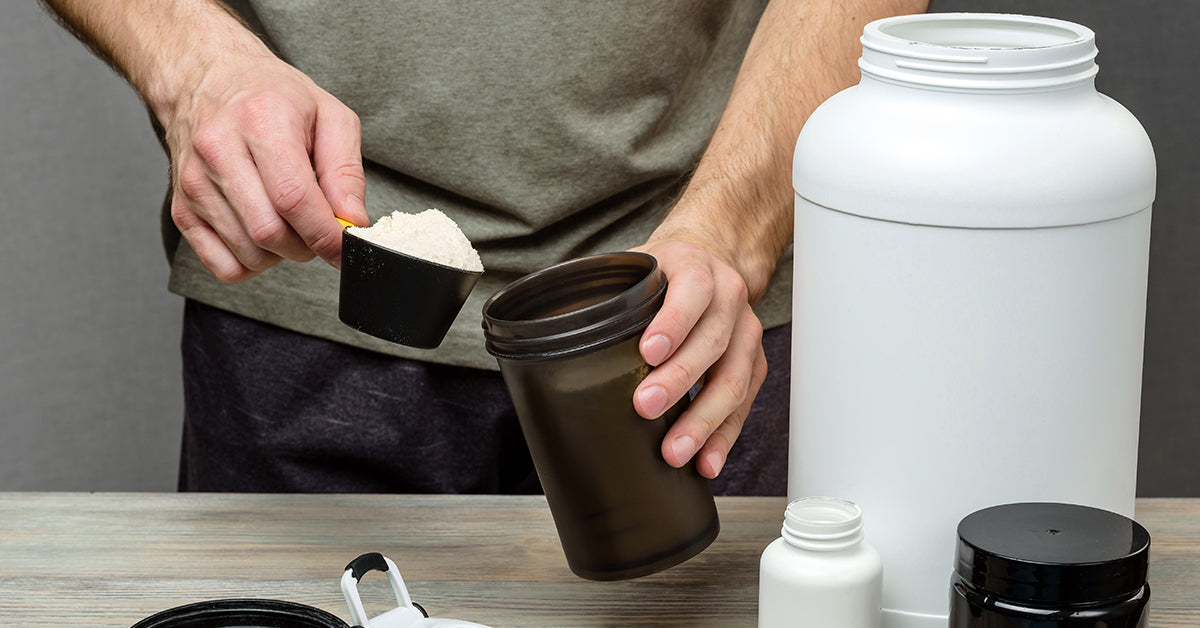You might wonder, "Can Whey protein shakes alone achieve fitness goals without exercise? Whey protein offers valuable nutrients and weight management benefits, but is it enough to replace gym workouts? Or, Why not savor the delicious flavors of BigMuscles Nutrition Premium Gold Whey Protein and stay lean?"
Doesn't this appear to be an effortless and achievable approach?
First, maintaining a healthy lifestyle requires consistent physical activity, and second, Whey Protein is no magic Potion.
This article will explore these questions about whey protein. We will also focus on the best time to take and how it affects your body.
Check out: How and When to Take Whey Protein: Optimize your Gains
Why do we Need Whey Protein?
Let's start by discussing the importance of protein. It aids in tissue development and repair, the production of enzymes, and the maintenance of a healthy immune system.

- Tissue Building and Repair: Protein is necessary for the development and maintenance of healthy tissues in the whole body.
- Enzyme Production: Our bodies contain thousands of enzymes that depend on protein for both structural and functional support. These enzymes work as catalysts that accelerate chemical processes that keep us alive and healthy.
- Immune Function: Proteins form the majority of antibodies. Adequate protein consumption promotes a strong immune system capable of combating infections and illnesses.
Recommended Dietary Allowance for Protein Intake
The Recommended Dietary Allowance for protein intake varies depending on age, exercise level, and health status. In general, an adult requires approx 0.80 gm of protein per kilogram of body weight per day. Active individuals or those with special health needs may require an increased protein quantity.
- Age: Protein demands rise mildly with age because of reduced muscle mass.
- Activity level: Active people, particularly those who participate in strength training, require more protein for muscle development and repair.
- Medical problems: Certain medical problems, such as persistent wounds or kidney illness, may demand higher protein consumption. It helps to improve healing or renal function.
Role of Whey Protein in Muscle Building
- Complete, high-quality protein: Contains all nine necessary amino acids, which the body cannot produce on its own. These are the building ingredients required for muscle protein synthesis.
- Rapid Absorption and Digestion: Whey protein has higher digestion and absorption rates than other protein sources such as meat and plant-based choices. This helps the body access its amino acids, making it useful after exercise or for a fast protein boost.
- Muscle Growth and Repair: Whey protein, when paired with strength exercise, can supply easily absorbed amino acids to promote muscle protein synthesis. While exercise is the major stimulus for muscle building, it can help with the recovery process.
- Improved Satiety: Whey protein ingestion might increase feelings of fullness and perhaps reduce overall calorie intake, assisting with weight control efforts.
- Bone Health Support: According to studies, it may improve bone health. This is important for people who are concerned about losing bone mineral density as they lose weight or get older.
- Immune Function Support: Protein aids in immune function. A recent study suggests whey protein may have immune-boosting properties.
Can You Consume Whey Protein and Skip Workout?

Consuming whey protein to meet your daily protein requirements is safe, even if you don't exercise often.
However, it is critical to recognize whey protein's limits. While it is a high-quality source of protein, muscular development requires more than simply protein. Exercise, particularly strength training, is the key to promoting muscle growth. It supplies the muscle-building components, but exercise stimulates muscle repair and development.
For instance, imagine you had a toolbox full of screws and nails (protein). If you don't have a project that requires them (exercise), the tools will not construct anything on their own.
Weight control is also an important consideration. Whey protein consumption can be satiating and could assist in weight loss when taken with a balanced diet.
However, it contains calories. If you're not burning those calories through exercise, exceeding above your daily calorie limit might lead to weight gain. Thus, if you're consuming whey protein supplements, pay attention to the total number of calories you consume. Consider it as a meal or snack replacement rather than an addition to your diet.
Best Time to Consume Whey Protein
Whey protein timing is all about optimizing Muscle Protein Synthesis (MPS), where muscle repairs and grows. Though it provides the building blocks (amino acids), when you consume it can impact how well your body uses them.
Traditionally, the "Anabolic Window" suggested a short window (1-2 hours) after exercise for optimal MPS. However, newer research shows this window is more flexible. While MPS is certainly higher after exercise, it stays elevated for several hours afterward.
- Pre-workout (30-60 minutes): A protein drink can increase circulating amino acids before activity. This provides rapid healing during exercise, reducing muscle breakdown.
- Post-workout (within 2 hours): Whey protein gives a concentrated dosage of amino acids while MPS is at its peak. This immediately promotes muscle protein synthesis and aids in recovery.
- Spaced Dosing Throughout the Day: Research shows that spacing your protein consumption throughout the day might result in a more sustained increase in MPS. BigMuscles Nutrition Premium Gold Whey Protein smoothies can be a simple approach to maintaining constant protein consumption.
The Effective Duo: Whey Protein with Workout
- Exercise Triggers MPS: Strength training causes tiny rips in muscle fibers. This activates MPS, the body's process of repairing and rebuilding muscle tissue, resulting in growth and development.
- Provides Building Blocks: Whey protein is high in necessary amino acids and provides readily available building blocks for the healing process. Consuming best whey protein during your training window guarantees a consistent supply of amino acids to drive MPS. This results in a synergistic effect. Exercise generates the demand, while whey protein offers the ingredients required for muscle development.
- Progressive overload is key: Remember that muscles adapt to difficulties. To maintain MPS and muscle development, progressively increase the intensity or volume of your exercises over time (progressive overload). This keeps your muscles stimulated and promotes additional adaption.
Is Whey Protein a Gym Partner or a Solo Performer?
We explored how protein works in your body and what whey protein is all about. A great source of amino acids that contribute to muscle growth, however, they won't bulk up on their own. Exercise, particularly strength training, is essential for muscular development. Whey protein can be a simple method to increase your protein consumption without having to work out, but it will not transform you overnight.
Yes! You can consume whey protein without working out, but it won't be as effective for muscle building as when combined with exercise. For optimal results, focus on a balanced diet, and consistent exercise. Also, consider consulting a healthcare professional for personalized guidance on protein intake, especially if you have any health concerns.
FAQs
Q1. Does whey protein primarily help with muscle building?
Ans. No. BigMuscles Nutrition Premium Gold Whey Protein offers high-quality protein. It supports weight management, recovery, and even a healthy immune system.
Q2. Can I Consume a Whey Protein Supplement without doing exercise?
Ans. Absolutely! Premium Gold Whey Protein is a convenient way to boost your daily protein intake, gym or no gym. But remember, exercise is key for significant muscle growth.
Q3. When is the best time to take whey protein for effective muscle growth?
Ans. Pre-workout shakes with Premium Gold Whey Protein provide ready-to-use amino acids, while post-workout helps recovery. You can also spread protein intake throughout the day with convenient protein shakes.
Q4. Is whey protein powder safe for everyone?
Ans. Generally safe for most adults. However, consult a doctor before using Whey Protein powder if you have health conditions, lactose intolerance, or dietary restrictions.
Q5. What is the daily recommended protein intake?
Ans. It depends on age, activity level, and goals. This blog suggests 0.8 grams of protein per kilogram of body weight daily, but active individuals might need more. Talk to a healthcare professional about your optimal protein intake.







